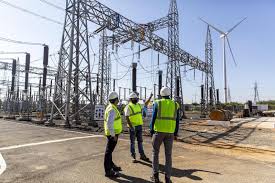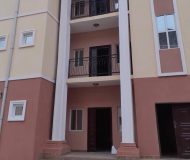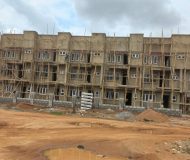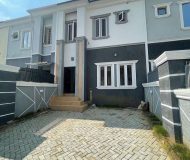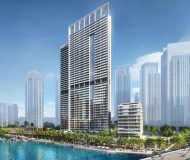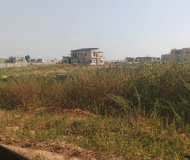The Impact of Rising Electricity Costs on Nigeria’s Real Estate Sector
In recent years, Nigeria’s real estate sector has faced a myriad of challenges, but one of the most pressing issues today is the soaring cost of electricity. The escalating price of power is significantly affecting property developers, commercial property owners, and tenants alike, creating a ripple effect that threatens the stability and profitability of the entire industry.
The Growing Burden of Electricity Costs
Electricity is a fundamental necessity for any property, whether residential, commercial, or industrial. In Nigeria, however, the cost of this essential service has skyrocketed, leaving real estate operators struggling to manage their overheads. The Nigerian Electricity Regulatory Commission (NERC) recently approved a new classification of electricity consumers into feeder bands, leading to dramatic increases in electricity tariffs, particularly for those in Band A. This category now faces a tariff of N209.50/kWh, up from N68/kWh, representing a staggering 240% increase.
For businesses operating in commercial spaces, such as shopping malls, office complexes, and industrial facilities, these rising costs are crippling. Many operators report that their electricity bills have tripled, making it increasingly difficult to maintain profitability. This situation is compounded by the unreliable power supply from the national grid, forcing many to rely on expensive diesel generators as a backup. With diesel prices surging above N1,100 per litre, the cost of running these generators has become unsustainable for many.
Impact on Commercial Real Estate
The commercial real estate sector has been hit particularly hard by these rising electricity costs. Shopping malls, office spaces, and hotels, which are heavily reliant on a consistent power supply, are now facing unprecedented challenges. Facility managers have had to implement cost-cutting measures, such as reducing the hours during which generators and air conditioning systems are used, or shifting to smaller, more energy-efficient spaces. These measures, while necessary, have resulted in a decline in the quality of services provided, leading to tenant dissatisfaction and, in some cases, increased vacancies.
The high cost of electricity has also led to a significant increase in service charges for tenants. In many commercial facilities, tenants are now being asked to pay higher fees for utilities, security, cleaning, and maintenance, all of which have increased by over 60% in some cases. This has created tension between property managers and tenants, with many tenants finding it increasingly difficult to meet these rising costs.
Residential Properties and the Housing Market
The residential real estate market is not immune to the effects of rising electricity costs. Homeowners and tenants alike are grappling with higher electricity bills, which are eating into their disposable income and making it harder to afford other essentials. For those living in properties classified under Band A, the cost of electricity has become a significant burden, with many now paying three times more for the same amount of power.
These rising costs are also affecting the housing market in terms of property values and demand. Potential homebuyers are becoming more cautious, aware that the cost of owning and maintaining a home in Nigeria has increased dramatically due to higher electricity expenses. This has led to a slowdown in the real estate market, with fewer people willing or able to invest in new properties.
The Way Forward: Sustainable Solutions
The current situation underscores the urgent need for sustainable solutions in Nigeria’s real estate sector. Property developers and managers must explore alternative energy sources, such as solar power and inverters, to reduce their reliance on the national grid and mitigate the impact of rising electricity costs. Investing in energy-efficient building designs and technologies is another crucial step that can help reduce overall power consumption and make properties more attractive to tenants and buyers.
Moreover, there is a growing need for policy interventions from the government. The review of outdated regulations, such as the Nigeria Land Use Act of 1978, and the implementation of more favorable energy policies could help ease the burden on real estate operators and promote a more stable and sustainable market.
The rising cost of electricity is a significant challenge for Nigeria’s real estate sector, affecting both commercial and residential properties. As operators grapple with these increasing expenses, the need for innovative and sustainable solutions has never been more critical. By embracing alternative energy sources and advocating for favorable policy changes, the real estate industry can navigate this challenging environment and continue to thrive in the years to come.
The Impact of Rising Electricity Costs on Nigeria’s Real Estate Sector
In recent years, Nigeria’s real estate sector has faced a myriad of challenges, but one of the most pressing issues today is the soaring cost of electricity. The escalating price of power is significantly affecting property developers, commercial property owners, and tenants alike, creating a ripple effect that threatens the stability and profitability of the entire industry.
The Growing Burden of Electricity Costs
Electricity is a fundamental necessity for any property, whether residential, commercial, or industrial. In Nigeria, however, the cost of this essential service has skyrocketed, leaving real estate operators struggling to manage their overheads. The Nigerian Electricity Regulatory Commission (NERC) recently approved a new classification of electricity consumers into feeder bands, leading to dramatic increases in electricity tariffs, particularly for those in Band A. This category now faces a tariff of N209.50/kWh, up from N68/kWh, representing a staggering 240% increase.
For businesses operating in commercial spaces, such as shopping malls, office complexes, and industrial facilities, these rising costs are crippling. Many operators report that their electricity bills have tripled, making it increasingly difficult to maintain profitability. This situation is compounded by the unreliable power supply from the national grid, forcing many to rely on expensive diesel generators as a backup. With diesel prices surging above N1,100 per litre, the cost of running these generators has become unsustainable for many.
Impact on Commercial Real Estate
The commercial real estate sector has been hit particularly hard by these rising electricity costs. Shopping malls, office spaces, and hotels, which are heavily reliant on a consistent power supply, are now facing unprecedented challenges. Facility managers have had to implement cost-cutting measures, such as reducing the hours during which generators and air conditioning systems are used, or shifting to smaller, more energy-efficient spaces. These measures, while necessary, have resulted in a decline in the quality of services provided, leading to tenant dissatisfaction and, in some cases, increased vacancies.
The high cost of electricity has also led to a significant increase in service charges for tenants. In many commercial facilities, tenants are now being asked to pay higher fees for utilities, security, cleaning, and maintenance, all of which have increased by over 60% in some cases. This has created tension between property managers and tenants, with many tenants finding it increasingly difficult to meet these rising costs.
Residential Properties and the Housing Market
The residential real estate market is not immune to the effects of rising electricity costs. Homeowners and tenants alike are grappling with higher electricity bills, which are eating into their disposable income and making it harder to afford other essentials. For those living in properties classified under Band A, the cost of electricity has become a significant burden, with many now paying three times more for the same amount of power.
These rising costs are also affecting the housing market in terms of property values and demand. Potential homebuyers are becoming more cautious, aware that the cost of owning and maintaining a home in Nigeria has increased dramatically due to higher electricity expenses. This has led to a slowdown in the real estate market, with fewer people willing or able to invest in new properties.
The Way Forward: Sustainable Solutions
The current situation underscores the urgent need for sustainable solutions in Nigeria’s real estate sector. Property developers and managers must explore alternative energy sources, such as solar power and inverters, to reduce their reliance on the national grid and mitigate the impact of rising electricity costs. Investing in energy-efficient building designs and technologies is another crucial step that can help reduce overall power consumption and make properties more attractive to tenants and buyers.
Moreover, there is a growing need for policy interventions from the government. The review of outdated regulations, such as the Nigeria Land Use Act of 1978, and the implementation of more favorable energy policies could help ease the burden on real estate operators and promote a more stable and sustainable market.
The rising cost of electricity is a significant challenge for Nigeria’s real estate sector, affecting both commercial and residential properties. As operators grapple with these increasing expenses, the need for innovative and sustainable solutions has never been more critical. By embracing alternative energy sources and advocating for favorable policy changes, the real estate industry can navigate this challenging environment and continue to thrive in the years to come.

